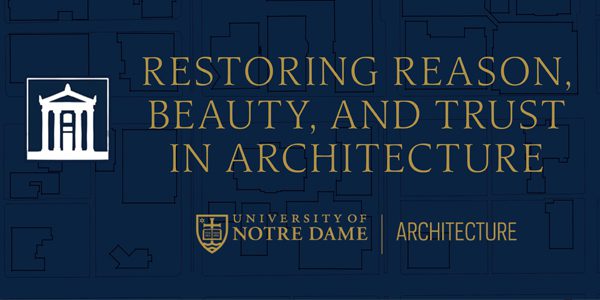Kylemore Book Club: Trailblazers – Breaking Gender Boundaries
Subscribe to the ThinkND podcast on Apple, Spotify, or Google.
Featured Speakers:
- Ann Heneghan, President, Connacht Rugby
- Phaidra Knight, Former US Rugby Player
- Eamonn Molloy, Education and Learning, Connacht Rugby and the Irish Rugby Football Union
- Justin Hickey, Program Director, Notre Dame Rugby
- Lisa Caulfield, Director of the Global Centre at Kylemore
The third virtual event of To Hell or to Connacht: Stories of Irish Resilience featured current President of Connacht Rugby, Ann Heneghan as well as former US rugby player, sports media talent, motivational speaker, and business entrepreneur, Phaidra Knight. This event was moderated by Lisa Caulfield, Director of the Global Centre at Kylemore, and featured Eamonn Molloy (Coach Development Manager at Connacht Rugby) and Justin Hickey (Director of Rugby – Head Coach at Notre Dame). The goal of this session was to take a closer look at Women’s rugby in Connacht and the USA and discuss the ways in which the women’s game has grown, but also the ways in which the women’s side of the sport is still not where it should be. Featuring regional/national players, international players and coaches, and the first female president of Connacht Rugby, topics such as opportunity, inclusivity, and the road ahead were discussed.
Personal stories and background from both Heneghan and Knight helped to bring discussions surrounding the women’s game and topics such as recruitment, funding, and media presence to light. The background stories and experiences explained through the pre-recorded videos and the live session helped to shed a light on how female players, coaches, and administrators have found the sport and how they have worked hard to bring it to the forefront of the media so it gets the attention it deserves.
Using pre-submitted questions and a flowing interview style, the hour consisted of questions asked by each of the moderators which were answered by Heneghan first and then Knight, whose experiences were quite different but still complimented each other and were interesting to hear and compare.
The questions began with Ann talking about her life-long interest in rugby and her involvement with the Connacht side for years before she got the role of Vice President, and then President of the provincial team. For Ann, rugby was a part of her life for a long enough time that she felt comfortable and at ease taking on an administrative role within the club even if she was the only woman to do so. She later took some time out to start her own solicitor business and when she returned to Connacht Rugby, she chaired their disciplinary committee. She went on to talk about being offered the position of Vice President and then President of Connacht Rugby as the first woman to hold this position in all of Ireland and how much it meant that it was Connacht to offer her this position over another province. She also discussed how low visibility of women holding administrative roles within rugby meant fewer women thought they could go on to get the roles (“if you can’t see it, you can’t be it”); an idea that Knight touched on later with regards to numbers of female players in rugby both in Ireland and the USA.
Next, Knight spoke about her experience finding rugby during her time at Law School and how the inclusivity of the team and the values that the game encapsulated drew her in initially. Knight spoke about the forecast that in the USA by 2025, 40 – 45% of the playing population of rugby will be women, showing that there is an upward positive trend (however, this number could slow slightly due to the pandemic). This trend, according to Knight, is partially forecasted because of the fact that more girls are starting to play from a younger age and are sticking with it. An increase in female participation means a boost in building the grassroots game and the high performance game, says Knight. One of the ways to help the growth in numbers is to turn to a more commercial spotlight on the sport and the women’s side in particular. Knight then went on to talk a bit about her own initiatives with using the sport as a vehicle for personal change for young women and the importance of visibility. Knight finished by talking about her clothing line, PSK Collective which recently launched and focuses on creating athletic clothes and casual wear made for women and all types of body shapes.
This event concluded with a short breakout session for viewers to meet and further discuss the content with fellow book club participants.
- “When I first became involved, there wouldn’t have been that many women involved in the administrative side” (Heneghan, 7:10)
- “It’s a huge honour, not just to be the first woman in Ireland to do this but for Connacht to be the first province to actually make this happen—to allow a situation or foster the community in a way that a woman can get to this level” (Heneghan, 8:39)
- “The one thing that I hope by my being president now is that it’s going to be something that women in the future who are involved in these types of roles will say, ‘yeah, now it’s my turn, I want to be president as well’. And there’s no reason why they can’t be” (Heneghan, 11:34)
- “I think by my getting so much publicity by being the first woman and being from Connacht, it’s given Connacht [Rugby] a huge boost” (Heneghan, 12:29)
- “Connacht is a more tight-knit community and because of that, it was easier for me in my different roles with Connacht Rugby for somebody to see me and say, ‘well, maybe there’s somebody who might make a president someday’, and in other provinces, I might have been overlooked” (Heneghan, 17:38)
- “I think that’s the uniqueness of Connacht; it’s our smallness, if you like, but it’s the heart I think that’s in Connacht and fans and the team play such a huge part and they’re inextricably linked” (Heneghan, 19:41)
- “I think because women have been involved so much more in sport now, and even in rugby itself […] all of those kinds of things have helped normalise a female being in the room” (Heneghan, 25:55)
- “By having more women involved at these kinds of levels it becomes normal. I think then that younger girls don’t doubt themselves as much” (Heneghan, 28:51)
- “That’s a good indicator that the game is being played at the High School level [in the USA] and even prior to that amongst youth in general and girls are playing the game and getting involved so that’s a great sign” (Knight, 33:47)
- “I’d always had this dream of being a world-class athlete and at that time, the only vision that I had was basketball, but I didn’t really have that because at that time […] there weren’t any obvious women playing professional sports” (Knight, 35:27)
- “It was probably the most accepting group of people I had encountered up to that point in my life” (Knight, 38:09)
- “What that rugby team offered me was really a fresh breath of air” (Knight, 38:35)
- “[Rugby] is very special; there’s a comradery there that you don’t necessarily find in other sports” (Knight, 42:59)
- “It’s certainly changed—people are a little bit more aware, and that’s highly attributable to just visibility. However, it’s not where it could be, it’s not where it will be” (Knight, 47:05)
- “One of the main things in luring girls into playing the sport is that they have to see other women playing the sport” (Knight, 54:06)
- “I’ve always felt like I had a strong build, a very athletic build […] and so it was always frustrating, even as a little girl, going in and trying on clothes” (Knight, 56:28)
Related Content
How Cities Speak To Us
Professor Emily Talen joins the School of Architecture to share her work at The Urbanism Lab and its focal point at the University of Chicago for the study of the built...
View EventThe Black National Anthem & Parent’s Signing Off On Children Reading Black Books
In this week’s episode, Isaiah and Tykiera talk about some tweets about Black people that took Twitter by storm. They also talk about The Black National Anthem, Lift Every Voice...
watch videoTrusted AI Needs Trusted Data
In the buzz around AI, let’s not ignore the role of data for developing AI we can trust, says one Notre Dame computational scientist. Two years ago, Notre Dame launched the...
Read Article


